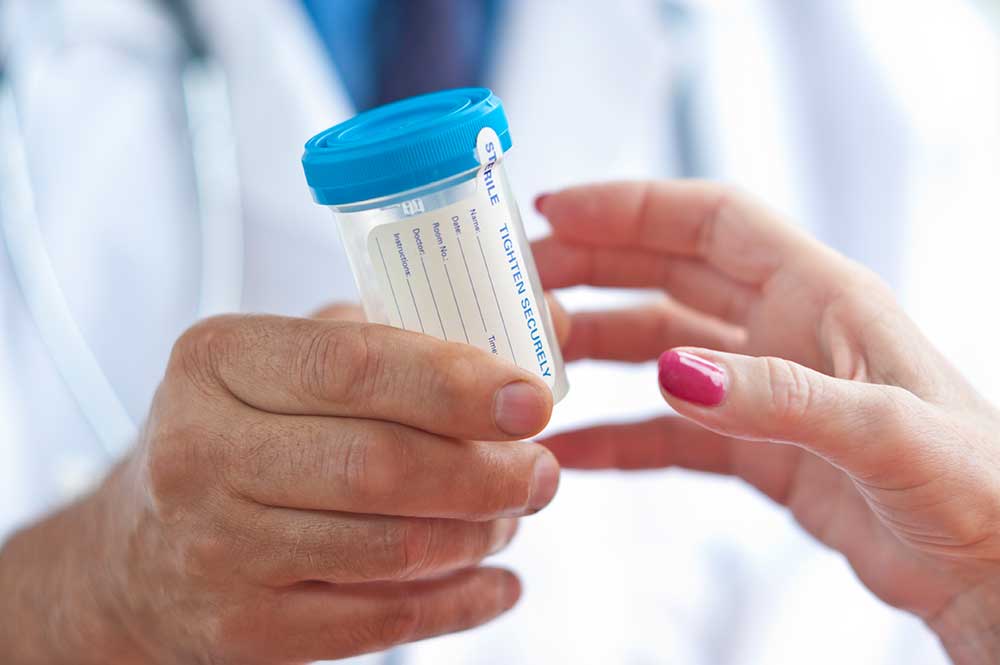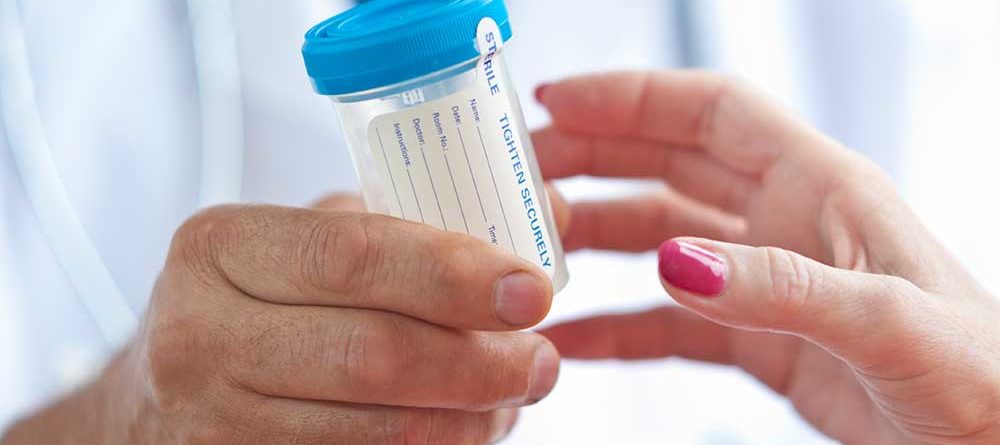Employer Drug Screening – What to Know

If you’re in early recovery and either looking for a job or are already employed and worried about employer drug screening tests, take a deep breath, calm yourself, and then become as informed as you can about the process. Never allow fear to dictate your behavior. Knowledge here is your best ally, so here’s what to know about employer drug screening.
WHAT IS EMPLOYER DRUG SCREENING?
Drug screening tests are standardized tests used by employers, where permitted by state law, to detect the presence of drugs or alcohol in the system. Employers may require drug screening for current or prospective employees under several situations. These include pre-employment, after an accident, for safety reasons, or collegiate or sports drug screening.
Any prospective employee applying for a position in safety-sensitive areas of federal transportation, aviation, hospitals, railways, trucking, mass transit, pipelines or any workplace where public safety is of paramount importance may be required to undergo drug screening.
In jobs where an elevated level of safety is required, employees may be subject to random drug screening. In addition, random drug screening may be required after a workplace accident, or if the employer suspects the employee of using drugs.
TYPES OF DRUG SCREENING TESTS
There are four types of drug screening tests that may be used by an employer to test for the presence of drugs and alcohol.
- Urine – The most common test used nationwide by employers to screen for the presence of drugs is the urine test. This test can detect alcohol, amphetamines, methamphetamines, cocaine, marijuana, nicotine and opiates, such as oxycodone and heroin.
- Blood – Another type of drug screening test is the blood drug test. Among the drugs blood tests can detect include alcohol, amphetamines, methamphetamines, cocaine, opiates, nicotine and marijuana. There is little opportunity for tampering with blood drug tests.
- Saliva – An easy test to administer using a swab, the saliva drug test detects recent drug use of alcohol, amphetamines, methamphetamines and cocaine. It is not especially useful in detecting drugs used over prolonged periods. Saliva drug tests can detect drugs used in the previous few hours, up to three days. Saliva drug tests are not as susceptible to adulteration as some other tests.
- Hair – Employers may opt for a hair drug screening test. This test detects drugs used for a long time, over 90 days. Hair samples are tested for cocaine, opiates, alcohol, marijuana, nicotine and phencyclidine.
HOW LONG DO DRUGS REMAIN IN YOUR SYSTEM?
The amount of time drugs stay in the body depends on the half-life of the drug, the frequency of use, the way you use the drug or substance, how hydrated you are and what your fluid volume is. The amount or concentration of drugs that show up in your system also depends on the testing laboratory’s cut-off concentration.
Many drugs remain for 2-4 days, although chronic marijuana use, for example, is detectable 3-4 weeks or more after the last usage.
Another drug with a long half-life is diazepam (brand name Valium), a Schedule IV controlled substance, which stays in the body for a prolonged period, up to 10 days. Hair samples can detect some drugs up to 6 months later. Most workplace drug screens use urine drug screening tests.
WHAT TO EXPECT FROM THE DRUG SCREENING
If your employer or prospective employer requires you to submit to a drug screening, you will be notified when and where it will take place. For example, you may receive instructions to report to a lab at a certain date and time, or within 24 hours. Once you arrive at the drug screening facility and check in, you will be required to submit a sample for testing for the presence of drugs and alcohol.
Drug screening facilities include Quest Diagnostics, Inc., Lenexa, Pamatech, Inc., Laboratory Corp of America Holdings, and National Toxicology Labs, Inc. There are also state-certified labs that do drug screening.
While the most commonly requested sample is urine, be aware that hair, saliva, blood or sweat samples may also be obtained, although other than urine, these are not common.
Drug screening facilities generally use one of two panels for screening, the 5-panel and 10-panel.
5-Panel – tests for the presence of street drugs (drugs of abuse):
- Marijuana (THC)
- Cocaine
- PCP
- Opiates
- Amphetamines (like methamphetamine)
10-Panel – In addition to testing for the above-mentioned street drugs, the 10-panel tests for the presence of various prescription drugs and alcohol:
- Oxycodone, methadone or other narcotic prescription drugs
- Benzodiazepines
- Barbiturates
- MDMA (Ecstasy)
- Alcohol
In addition, a drug screening test may look for the presence of other recent designer drugs. Which drug test is used depends on the private employer, federal requirements, or other current workplace guidelines.
HOW TO PREPARE YOURSELF PSYCHOLOGICALLY FOR THE DRUG SCREENING
It is normal to feel a little anxious when going for a drug screening test. If you know you haven’t used any drugs or alcohol, there’s nothing to be concerned about. If you are taking prescription medications as directed by your doctor, and these medications are part of the panel screened for, such as oxycodone for pain following surgery, be upfront with your employer about the medication you’re taking, what it’s for, and have a note from your doctor. You should be protected from discrimination by the Americans with Disabilities Act. If you test positive for the presence of the drug, an additional test called the gas-chromatography mass spectrometry (GC-MS) may be performed to determine false-positive and true positive. Some prescription drugs, food and other drugs are interfering factors that may result in a false positive.
Remember that your employer, or prospective employer, has the right to require drug screening tests. With the number of Americans struggling with opioid addiction increasing, and the numbers of employees testing positive for the presence of opioids and other illicit drugs hitting a 10-year high, employers are trying to deal with the direct impact of prescription drug abuse in their workplaces. Employees with substance use disorders miss 50 percent more days from work than their peers. Safety violations, workplace accidents, medical and compensation claims cost employers dearly.
You can, of course, refuse a drug screening test, but it’s not recommended. Keep in mind that you do so at your own risk of losing employment or being refused employment. It’s also important to remember that many employers offer the services of an employee assistance program so the employee can get counseling or treatment. Termination is not always the outcome if you test positive for drugs, unless you refuse treatment that may be required by your employer. Some states prohibit immediate termination.
And, if you’re in a job mandating Department of Transportation (DOT) drug screening and test positive, you will be removed from safety-related positions, will be required to see a substance abuse professional, undergo a follow-up examination by the same substance abuse professional, submit to urine and/or blood tests for the presence of drugs or alcohol prior to returning to safety-sensitive positions regulated by the DOT, and be subject unannounced follow-up testing for 12-60 months.
Sources:
MarketWatch, “Americans struggling with opioid addiction miss 50% more work than everyone else.” Retrieved July 27, 2017
Mayo Clinic, Mayo Medical Laboratories, “Approximate Detection Times: All Specific Drug Groups.” Retrieved July 27, 2017
Medline Plus, “Urine drug screen.” Retrieved July 27, 2017
Quest Diagnostics, Inc., “Pre-Employment Drug Testing.” Retrieved July 27, 2017
Quest Diagnostics, Inc., “Why hair drug testing?” Retrieved July 27, 2017
The Balance, “What is Included in a Blood Drug Test for Employment?” Retrieved July 27, 2017

